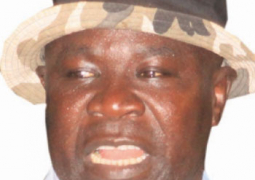Citizens who expect their governments to lead on sustainability have been badly disappointed in recent years. From largely ineffectual international climate conferences to the failure to pass meaningful U.S. climate legislation, governments’ progress has often been lackluster. Leadership has come from the bottom up rather than the top down. Action on climate change, species loss, inequity, and other crises is being driven by citizens’, women’s, and grassroots movements around the world, often in opposition to the agendas pursued by governments and big corporations.
State of the World 2014, which marks the Worldwatch Institute’s 40th anniversary, examines what Governing for Sustainability really means. Contributing authors highlight the responsibility of political and economic actors to achieve sustainability, emphasizing the strength of citizens to make significant sustainability changes and showing why effective governance systems need to be inclusive and participatory, allowing members to have a voice in the collective decision making.
“Governments today cannot consistently control themselves because they are decimated by a plague of corruption that devours the public interest in virtually every political system,” says David Orr, Paul Sears Distinguished Professor of Environmental Studies and Politics at Oberlin College and State of the World 2014 contributing author. “Effective government, in its various forms, will require an alert, informed, ecologically literate, thoughtful, and empathic citizenry.”
In this edition, contributing authors examine the potential for improving governance by analyzing a variety of trends, such as local and regional climate initiatives, energy democracy, and corporate responsibility. They argue that sustainability depends on action in both the economic and political spheres. Financial industries need to serve as public stewards again. Unions can help ensure that the transition to sustainability is socially just. Most importantly, citizens must take responsibility and empower themselves.
“Ultimately, it seems to us, all governance begins with individuals in communities. Humans are no more isolated actors in politics than they are the independent molecules of mainstream economic theory,” says State of the World 2014 co-director Tom Prugh.
“Pressure to improve governance, at every level, can come only from awakened individuals, acting together, dedicated to making their communities sustainable places,” adds State of the World 2014 co-director Michael Renner. “From there, it may be possible to build communities in a way that affords every person on Earth a safe and fulfilling place to live, and offers future generations the same prospect.”
State of the World 2014’s findings are being disseminated to a wide range of stakeholders, including government ministries, community networks, business leaders, and the nongovernmental environmental and development communities. The book’s launch is on April 29.
For more information on the project, visit http://www.worldwatch.org/state-world-2014-governing-sustainability. Worldwatch is an independent research organization based in Washington, D.C. that works on energy, resource, and environmental issues. The Institute’s State of the World report is published annually in more than a dozen languages. For more information, visit www.worldwatch.org.
Guest commentary.
‘Leadership has come from the bottom up rather than the top down’
State of the World 2014




